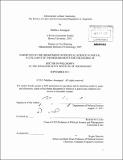| dc.description.abstract |
How can states with weak and politicized bureaucracies enforce labor and environmental regulations? Through a study of subnational variation in Argentina, this dissertation develops a framework to explain why bureaucrats are able to enforce regulations in some cases and not others. The framework focuses on two factors: the strength of linkages between bureaucrats and civil society organizations, and the level of administrative capacity in the bureaucracy. Strong linkages can facilitate routinized resource sharing and the construction of pro-enforcement coalitions, and administrative capacity determines whether bureaucrats passively or strategically use societal resources. By explaining variation in patterns of enforcement that are obscured by existing approaches, this research opens up new possibilities for crafting strategies to strengthen regulatory institutions. The dissertation draws on data collected during sixteen months of field research, including over 250 semi-structured interviews and an original survey of labor inspectors. |

